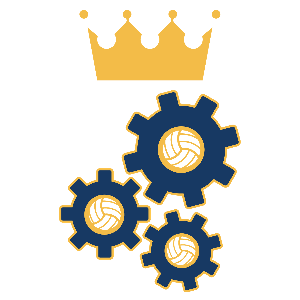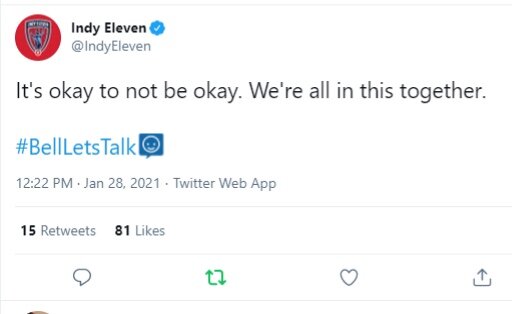How I learned to overcome myself
Life can be overwhelming at times. Meetings, training, family, friends, etc. Obligations begin to pile up and your schedule just gets hectic. It can be tough trying to deal with everything by yourself. Anxiety and stress begin to kick in and start to affect every aspect of your life. How do we cope with this? Learning to train your brain, not only for performance but for life in general, can have a massive affect on the trajectory of your success. We all struggle with something. Those that take the steps to address those issues properly are the ones that tend to come out on top.
Admitting is the first step
It’s hard to admit you have a problem. Especially as athletes, we’re supposed to be tough and elite. Mental weakness isn’t a part of our DNA. People often forget that every athlete is human as well. Just like every other human, we experience a variety of emotions. We get down after bad performances. We get anxious before games. But how do we learn to deal with the rollercoaster of thoughts and feelings?
For me, it was reading and learning from other athletes who have been through it. If you hear the same thing enough times from numerous people who have been through it, eventually you have to listen. It started with guys like Kevin Love and Michael Phelps admitting that they struggle with their mental health and dealing with negative thoughts. If guys at the pinnacle of their sport are admitting these issues, why couldn’t I? As more and more athletes came out in support and began sharing their stories, I started to realize that I wasn’t immune to these issues.
Kevin Love sharing his thoughts on the importance of mental health
I needed to learn how to talk to myself. How to think about myself. The best way to control all of the thoughts running around in my head that sometimes paralyzed me when I needed to perform. But first, I simply needed to admit that I needed help. I wasn’t sure if I needed professional help, but I knew I needed to figure out how to control the voice of self-doubt that often crept in my head. Once I realized I needed to change, then I started taking the steps towards positive growth.
Talking about it
The stigma around mental health is changing drastically. Before, talking about mental struggles was very taboo. It was seen as a form of weakness and athletes just can’t have those. As the tide turns, and more athletes begin to start sharing their struggles mentally, there has been a natural shift to learning how to deal with the inevitable mental strain of being in a competitive environment. Knowing that you aren’t alone can often make it easier to open up. When you understand that people just like you, in this case athletes, are going through similar struggles then you can form a connection that will hopefully help you to deal with your issues.
Campaigns like #BellLetsTalk have been a great way for people, athlete or not, to share their stories about their mental struggles and how it affects their every day lives. In 2020, I struggled mightily with everything that was going on in America. The rising racial discord had a huge effect on me mentally. I had to deal with the issues of being a black man while also going to work every day and performing at a high level. It took a hard mental toll. I found solace in my fellow black soccer players. To hear them share their stories, that were similar to mine, made me realize I wasn’t alone and I could lean on them for support. From all of that, the Black Player’s Alliancewas formed and that group has helped me address a lot of the issues I was grappling with personally.
Sports teams, like the tweet below, are starting to understand the importance of mental health and how it affects athletes’ performance. Many professional teams, and even some college programs, employ full time mental strength coaches for athletes to learn how to tackle the issues they face from within. The emphasis on mental performance will continue to grow within the sports world and will help to improve the health of athletes both on and off the field.
Indy Eleven showing support on national #BellLetsTalk day.
Not every team will have a mental health professional on staff to guide you through the process. Like I talked about in a previous article, you have to be proactive to make sure you are doing everything you can to be the best version of yourself. Seeking out a therapist can have benefits for your performance on the field as well as give you a boost off the pitch. There’s no shame in talking to a professional. I’ve done it. Other professional athletes do it on a regular basis. Don’t be afraid to ask for help. They may not have the experience of a professional athlete, but they can help you learn mental techniques that you can translate over to your performance.
Confidence is the key to success
As humans, we are really good at talking ourselves out of just about anything. Too often, negative thoughts flood our brain overpowering any positive notion that could come in. I used to have this issue before every soccer game that I would play. I would be close to a panic attack while sitting in my locker thinking about all of the mistakes I could potentially make in the upcoming game. I would have flashes of dropping a ball, misplacing a pass, or a ball flying in the top corner while I stood by helplessly. I feared making a mistake because I didn’t want to embarrass myself or let my team down. That fear often affected my decision-making in games and didn’t let me show my true ability.
Over the past couple years, I’ve put a huge emphasis on how I talk to myself. Whether it’s out loud or in my own head, I focus on the positives in order to drown out the negative. I do my best to avoid demeaning remarks, whether flippant or not, because words have power. No one else is going to give you more confidence than yourself. Instead of thinking about potential negative outcomes in the game, I began focusing on simple positive situations I’ve completed hundreds of times before. Completing a pass to my center back. Throwing a good ball out to my defender. Collecting a cross in traffic. These are all actions I take every single game and are relatively easy to complete. On top of the positive visualization, I use a quick affirmation just before the whistle blows to remind myself of who I am and what I’ve achieved.
No matter how I am feeling that day, it’s always important for me to be confident when I step on the pitch. I don’t get that confidence from anyone else. I get it from the training I put in during the week. The video analysis I did before practice. The routine that I’ve set in place which I know will put me in the best position to be successful once the game kicks off. These are all actions I take to ensure that my confidence stays at a level where I can continue to perform at my best. Figure out what makes you confident and make it consistent.
We all have doubts. We all question who we are and what our purpose is at some point in our lives. The important thing is understanding that you aren’t alone. Being able to open up and connect with others who are going through similar issues is one of the best ways to help you overcome your own. Maybe you aren’t comfortable sharing with a group and that’s fine. Find someone who you can confide in, whether it’s a professional or simply a friend. You aren’t alone. As an athlete, your mind is your strongest asset. Don’t let your ego get in the way of your success. You need to train your brain just like you need to train your jump shot or out-route. Be mindful of who you are and who you want to be.
How have you learned to control the mental part of your life? Whether it’s as an athlete or in some other competitive field? I would love to hear more stories and advice on how to deal with mental health. If you have any questions or want to discuss any parts of the article, feel free to reach out to me on Facebook, Twitter, Instagram, or LinkedIn!
Also, be on the look out for our mental strength program coming soon! Want to know more? You can contact us at Prime Focus Goalkeeping or First XI Advisors.
Written by Brandon Miller



